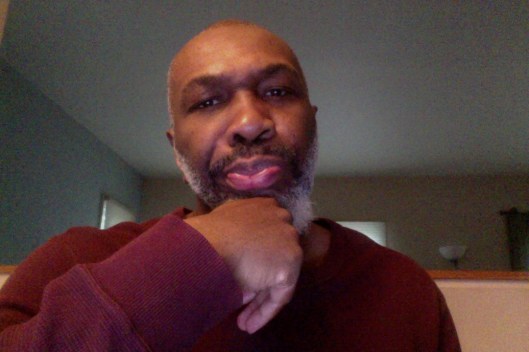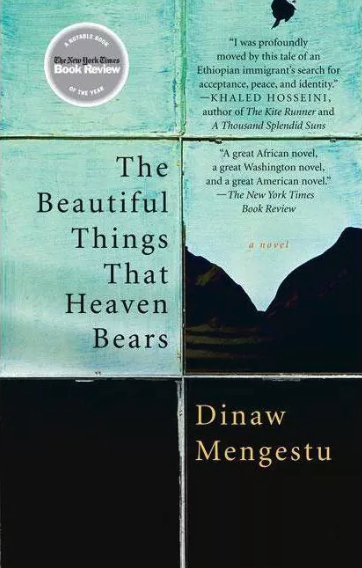
Me, 23 years after my PhD graduation, May 18, 2020. (Donald Earl Collins).
As a confessed educated fool, I readily admit that there are a ton of things I understood but did not act on. But I also know that there are solar system loads of unwritten rules that I didn’t and couldn’t possibly have known going into my professional future toward the end of my undergrad days at the University of Pittsburgh. And, there’s the stuff that falls in between. The rules that are not hard rules, ones that can be bent, twisted into pretzels, and/or broken or even shattered. The things that I didn’t know I knew, the ideas and principles that are ingrained or splinters in my mind, but not quite accessible until the moment I needed them, or, even worse, right after I really could’ve used that extra bit of knowledge and wisdom.
This list is merely the beginning of the most important rules I could impart to my younger self, at 20, 30, and yes, 40 years old. Donald’s 1.0, 1.5, 2.0, and 2.5 all believed that his mind, his imagination, his hard work and achievements would all carry the day, would win him a slice of prosperity, a sliver of intellectual respectability, a piece of popularity, even. All to have moments and flashes of all three, but not usually at the same time, and all to realize that talent and hard work for Black folx in a Whiteness world matter not. Not even among most Black elites. I could list 1,000 unwritten rules and other ideas that I wish I had known or — if I did somehow already know — taken advantage of. But the real theme here is that the meritocracy is a lie. Whether in the form of rugged individualism or a belief in K-16 education as a social mobility equalizer, merit through talent and hard work is an American mythology like Abraham Lincoln “freeing the slaves” and America as always good and righteous.
1. You are a writer. Whatever the job, whatever the career path, whatever the familial and relationship and marital responsibilities, you are a writer. Yes, despite it all, your calling is to write about it all. Period. It does not matter if you think most of your writing is crap. All writers think their writing is crap. It does not matter if you’re really good at organizing conferences, retreats, and learning institutes. Or, if you are excellent at curriculum design, a tough but caring history and education professor, a science nerd and a talented computer science geek. Nearly every writer has another set of jobs and careers besides writing. Just because your co-workers, colleagues, and even family might not see you as a writer first, does not mean that you are not a writer.
And, here’s the real deal. Not everyone needs to know that you are a writer. Some dumb muthafuckas will use your expressed calling against you, especially if and when they do find out about your creative side and your one troy ounce of success. Some of your enemies, nemeses, and family members and friends will literally laugh in your face when you discuss your aspirations with them. You have to know whom to trust and not trust with this truth about yourself. You will learn, in time, to keep your own counsel, to not let everyone in your world in on your not-so-secret secret.
And you will learn that to write is not just putting pen to paper or fingers and thumbs to a MacBook keyboard. It’s reading, beyond the academic tome, beyond the occasional novel or Walter Mosley detective mystery. It’s reading folx who’ve struggled with writing just like you. It’s people-watching on trains and the Metro. It’s listening in Univision or Telemundo programs while folding clothes at a laundromat with a mostly Salvadoran, Nicaraguan, Nuyorican or Dominicanyorka audience. It’s thinking of an idea while cleaning chicken thighs for dinner or on the occasions you end up jacking off for lack of sleep. It’s all the vivid dreams and nightmares — really, visions — that you’ve had of present, future, past, past-future, future-present, and ever-present, about escape, about overcoming, about being trapped. That’s all a part of the process.
2. Degrees matter, and yet, degrees don’t matter for shit. I cannot believe that your dumb-ass self believed for years that getting the “PhD would be a passport for doing what [you] wanted to do in [your] life.” You must have said this to 50 of your closest friends, acquaintances, and even a couple of folks who you eventually realized were your enemies back between 1990 and 1997. At your most stressed times, those sudden, bolting-upright-in-the-bed-at-3am moments, with your heart thumping like you were Bugs Bunny ogling Lola Bunny, you believed the doctorate was the ticket. You kept telling yourself this, even as you had doubts about what the degree meant as you finished your coursework in 1994. You cast yourself atop this hill, especially after becoming a Spencer Dissertation Fellow in 1995, even though you and many in your cohort were all obvious misfits in the grad school system.
Yes, in the narrow sense of job qualifications, degrees matter. But, you earned your master’s degrees in History in April 1992. At 22 years old! You were all-but-dissertation at 24. 24! You could’ve taken time off, earned a teaching certificate in a year, gone on to teach at public, private, or parochial school, or even earned a degree in a more practical field, like psychology, social work, education, journalism, creative nonfiction, or sociology. So admit it, damn you! You were attracted to some aspects of the tenured faculty lifestyle. Not most of it, to be sure. Yet the idea of having a schedule where you spent lots of time doing research and writing. You secretly craved being paid to write whatever you wanted to write. Even though you already knew that you could only do this if you willing to write like a cold, dispassionate White guy well-off enough to not care about reaching an audience outside of his extremely narrow field.
So you convinced yourself for nearly two decades that you could do and be both. A writer for mainstream organs and readers and a writer for academe. You weren’t wrong. Your eclectic writing style can accommodate complex scholarly ideas and personal tales and dramas, even creative techniques to transition between them. But the world of the privileged rarely allows for the crossover-dribble equivalent for writers. With a doctorate, you are an egg-headed scholar to the average editor, and cannot possibly write in any other way. For journal editors, your style was never gonna be scholarly enough. For newspaper and magazine editors, your style was always too cerebral. And, despite your degree, you had a hard time convincing others of your expertise. You only earned a PhD in History from Carnegie Mellon University, okay? Not from UCLA or Berkeley or Stanford, or certainly not from Harvard, Yale, or Princeton, or even UPenn, Georgetown, or Columbia. Your years of published works and a couple of self-published books would be barely enough to convince Ebony to take a look at your work when you hit your mid-40s. Forget about trying to bifurcate and make your degrees work for you. Get a good job, and just find more and more ways to keep writing, and hopefully, you won’t be dead before people start reading your stuff.
3. Academia, the nonprofit world, and the writing world only make room for Blacks and other people of color when then either completely conform to its -isms (tokens), or when we prove ourselves to at least be moderately successful mavericks. There is no in between, there is no best-of-both-worlds, or straddling the fence, or finding yourself as the Emissary that can cross between worlds. You are not Avatar Aang, the Last Airbender or Captain Benjamin Sisko of DS9. Even among other Black folks, like when I was offered a tenure-stream position in the Department of Africana Studies (née Afro-American Studies) at Howard University in 2000, it came with the implicit stipulation that I needed to conform, to always respect my elders — no matter how elitist and exclusionary I thought they were. At nearly every job I have held since 1996, I have been hired as a token toward diversity with the added benefit of my degree and/or specific expertise, or because I went against the grain to do or write something counterintuitively.
But if that were all, you may have figured some aspect of this out during the Reagan years. The layers of intersectional elitism, from whole institutions like lily-White, College Republican, and two-comma-kid Carnegie Mellon, to department-level beliefs of assuming that you as someone who grew up with poverty would somehow survive summer after summer without financial support. There were also the professors, who to a person assumed that “a few years of hazing will be good for you,” as if you grew up without a material care in the world. After all, how could a Black guy from Mount Vernon, New York with your familial and socioeconomic background find themselves in the hallowed halls of major universities?
Yeah, man. There are almost as many layers of elitism in the working world as there are folds in the gray matter of an alleged Mensa genius. Racial paternalistic elitism, neo-Marxist elitism, misogynist elitism, Marxist elitism, socialist elitism, misogynoir elitism, White feminist elitism, Afrocentric elitism, corporate elitism, technocratic elitism. There’s also Ivy League elitism, HBCU elitism, country-club elitism, affluent Black elitism, African Black elitism, Afro-Caribbean elitism, Puerto Rican elitism, and biracial elitism. And lest I forget, there’s that from-the-5-boroughs-New Yorker elitism, served-in-the-Peace-Corps elitism, revolutionary elitism, anti-revolutionary elitism, and even contrarian elitism. Cutting through all these layers over several decades might leave you in a rage, ready to holler at a moment’s notice, and with some bouts of exhaustion and high blood pressure. But the truth is, none of these dumb asses know how deep in The Matrix they are, putting on enough airs to crush entire cities into oblivion.
4. You will have moments of serious doubt. You will have days, weeks, months where you will be depressed. You will have “waiting for the other shoe to drop” emotions, even when everything is going well professionally. You will feel that you do not belong. Not in academia. Not in the nonprofit world. Not as a writer. Not as an American. Sometimes, not even as a Black American. You will have bouts with what we call imposter syndrome. And yes, you do not fit in easily anywhere, because you have spent so much of your life trying to learn how to cope in places and spaces that never wanted you. Your experiences with millennialist religions, with poverty, with Blackness, with growing up in Mount Vernon/New York City, will help you cope. But you will never be a fit in any place you inhabit in this lifetime.
And, you need to know that this will be perfectly fine. Fitting in never brings you the material and psychological benefits you will seek for yourself and your loved ones. Fitting in only brings you headaches on the regular, endless cycles of diarrhea and constipation, a nearly permanent insomnia. Fitting in makes you almost forget your training as an African American historian and your expertise in understanding the human condition. Fitting in nearly kills the writer you so desperately need to become before you even fully acknowledge that you are one.
So, do not ever fit in. Do not even try. Be you. Be your best you. If that isn’t enough, that’s the problem of a world full of bullies, Head-Negro-in-Charge micromanagers, White moderates, paternalistic White women, and other who would prefer brown-nosers to free thinkers. Not to mention, the armies of sycophants these assholes tend to hire.
So, the meritocracy is a neoliberal lie, and a debt-ridden deadly one. You might never break through as a writer in all the ways that matter to you. Or you just might. Or, you may fully break through, only to find out that you are so much more than the writer you will eventually become. But do not look for approval. Especially not from the US academic and literati set. Let them continue to eat their shitty cake.







